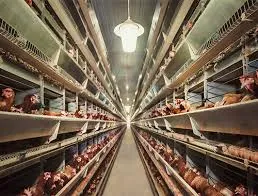Caged Poultry
9 月 . 06, 2024 11:28 Back to list
Caged Poultry
The term caged poultry refers to birds that are raised in confined spaces, primarily for commercial egg production and meat production. This method of poultry farming has become a significant topic of discussion due to its implications for animal welfare, environmental sustainability, and food safety.
Caged poultry systems, especially in the case of egg-laying hens, often involve keeping birds in small, cramped cages with limited room to move around. The convenience and efficiency of this farming method make it attractive to producers; however, it raises ethical concerns regarding the quality of life for the animals. Critics argue that these cages prevent birds from expressing natural behaviors, such as nesting and foraging. As a result, many animal rights activists advocate for the implementation of cage-free systems, which allow hens more freedom to roam and engage in natural behaviors.
The shift from caged to cage-free systems is gaining traction as consumers become more aware of and concerned about the welfare of farm animals. Many grocery stores and food brands are beginning to commit to sourcing cage-free eggs, reflecting a growing demand for ethically produced food. This change is also influenced by various campaigns aimed at educating the public on the conditions in which caged poultry are raised.
caged poultry

Beyond ethical concerns, caged poultry farming poses significant environmental challenges. The concentration of large numbers of birds in confined spaces can lead to increased waste, which, if not managed properly, can contribute to soil and water pollution. Moreover, the high-density living conditions can facilitate the spread of diseases among poultry flocks, leading to health issues that can impact food safety.
In response to these challenges, some producers are exploring alternative farming practices that prioritize animal welfare and sustainability. Free-range systems, which offer birds outdoor access, and pasture-raised systems are becoming more popular. These systems not only allow for better living conditions for the poultry but also may yield healthier products for consumers.
In conclusion, the topic of caged poultry touches on important issues regarding animal welfare, consumer awareness, and environmental impact. As the conversation around food production continues to evolve, it is crucial for producers and consumers alike to consider the implications of their choices, leading to a future where poultry farming can be both ethical and sustainable.
-
Battery Layer Cage Systems With Automatic Feeding Machine
NewsMar.07,2025
-
Hot Selling Multi Function Vacuum Packaging Machine
NewsMar.07,2025
-
Chicken scalder plucker machine for sale poultry scalder chicken plucking machine
NewsMar.07,2025
-
Egg Tray Making Machine 1000, 2000, pulp molding machine
NewsMar.07,2025
-
Automatic Feeding Line System Pan Feeder Nipple Drinker
NewsMar.07,2025
-
cage layer chicken
NewsMar.07,2025






